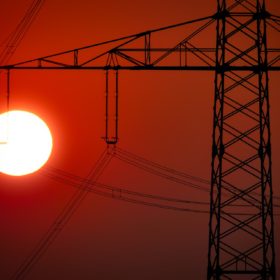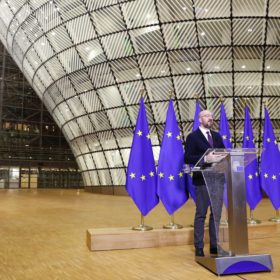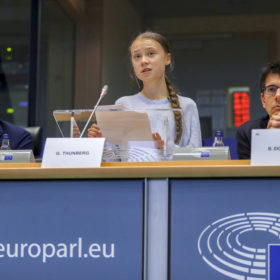Global solar capacity may reach 1,448 GW in 2024
SolarPower Europe has predicted the volume of new PV capacity added this year will be 4% less than last year’s figure because of the Covid-19 crisis. At the end of 2019, the world had topped 630 GW of solar. For 2020, around 112 GW of new PV capacity is expected, and in 2021, newly installed capacity could be 149.9 GW if governments support renewables in their coronavirus economic recovery plans.
Europe can be 60% powered by solar before 2050
Perhaps it is not surprising a report co-produced by Europe’s solar industry places PV at the heart of a zero-carbon, mid-century energy system on the continent. However, the study does flesh out two out of three scenarios in which becoming carbon-neutral by 2050, or even 2040, could be possible.
Debt financing the main obstacle to PV during Covid-19 crisis
Industry body SolarPower Europe hosted a webinar to consider how the global public health crisis will affect solar. While workers and materials are still available, industry experts are concerned about the state of the financial sector. Banks could become more conservative and raise the cost of capital for renewables projects.
Covid-19 daily bulletin: Solar developer donates more Chinese PPE
Grenergy was this week due to ship 400,000 face masks to Latin America as European developers today voiced a fear project finance will become increasingly difficult to find as the coronavirus lockdown continues.
Covid-19 daily bulletin
pv magazine rounds up the latest Covid-19-related stories likely to affect the world of solar and energy storage.
European Council raises hopes of green stimulus package
The economic fallout of the Covid-19 outbreak is yet to be determined but as legislators scramble to establish fiscal support for the EU it is becoming clear the suits in Brussels are not prepared to scrap their hard-won Green Deal plan. Quite the opposite, in fact.
European industrial strategy makes no mention of solar
The move has been welcomed as a step in the right direction by lobby group SolarPower Europe nevertheless, particularly as it envisages bringing together EU low-carbon businesses. The outline ambition will now be considered by the European Parliament.
EU Climate Law dubbed a ‘surrender’ by Thunberg and a ‘disappointment’ by trade bodies and politicians
European Parliament groupings, renewable energy associations and climate activists have voiced disappointment at the EU Climate Law officially unveiled yesterday. Lack of a raised emission-reduction ambition to 2030 is at the heart of the opposition, with critics saying the plan will be insufficient to help prevent global temperatures rising more than 1.5 degrees Celsius.
Solar and wind generation outpaced coal in Europe last year
Renewables generated more electricity than coal in the EU for the first time ever in 2019, driving the sharpest reduction in the European power sector’s carbon emissions in three decades, according to a new report.
SolarPower Europe repeats call for solar strategy as part of European Commission’s €1tn Green Deal
Lobby group CEO Walburga Hemetsberger says the plans announced by commission president Ursula von der Leyen this week should place the European solar industry front and center.









